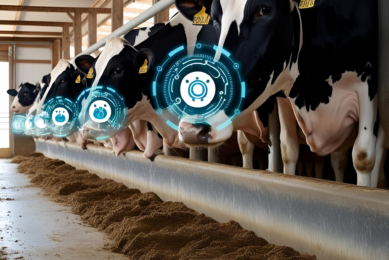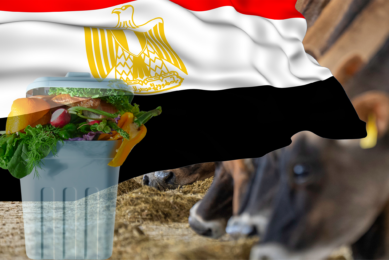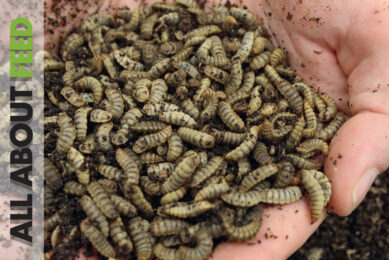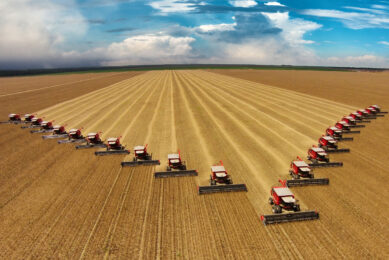Argentina’s new ‘deforestation-free’ certified beef exports to EU

Beef giant Argentina is upping its game by introducing a new certification scheme that guarantees its EU meat exports comes from sustainable sources that are free from deforestation.
Argentina is already destined to export around 50,000 tonnes of beef annually to the EU, which accounts for 7% of its total beef exports worth around $500 million. China is its top beef market taking in 80% of exports. However, new food import regulations imposed by the EU to increase sustainability has encouraged Argentina to look ahead and offer this new certification scheme for beef. Argentina says it is one of the first beef exporting countries to carry out a risk analysis and ensure traceability and certification of one of its main export products.
Since 2023, the Argentine livestock and meat chain has been working to comply with the EU regulation 2023/111
Traceability & certification of deforestation-free products
During an event in Brussels at the Argentine Ambassador’s EU residence, the Argentine Beef Promotion Institute (IPCVA) introduced the new compliant certification scheme.
The new scheme complies with the EU requirements integrated into the VISEC (Sectoral Vision Gran Chaco) platform. This innovative tool, developed to ensure the traceability and certification of deforestation-free products and involving the entire cattle chain, guarantees that shipments to European markets will come from non-deforested livestock establishments. It ensures compliance with the EU Regulation 2023/1115 (EUDR) approved in mid-2023 and coming into force on December 30, 2024.
Measures need to be scientifically based
Adrian Bifaretti, from IPCVA said: “Since 2023, the Argentine livestock and meat chain has been working to comply with the EU regulation 2023/1115. “Activities included meetings with EU representatives in Argentina and Mercosur. The work was consolidated in VISEC Carne, with participation from entities of ranchers, consignors, transporters, and the meatpacking industry.
“VISEC establishes a joint strategy to comply with the EUDR and evaluates independent third parties to ensure compliance with the new regulation through certification.”
Bearing sustainability goals in mind, Argentina has always asserted that the agribio industrial sector is part of the solution to global problems and that any measures must be scientifically based and adapted to local realities.
In this regard, Argentina hopes that this new regulation, being a unilateral and autonomous measure implemented by the EU, will not affect normal trade flows to this market and will not become a barrier to access from its full implementation on January 1, 2025.
First certified beef arrives
In order to test the viability of the system, Argentina has already exported the first pilot test shipping 1.4 tonnes of certified deforestation-free beef to Germany. This is in addition to pilot tests with soy, another of Argentina’s export products that must comply with the new legislation.
Dr Gerardo Leotta, from the Consortium of Argentine Meat Exporters, said: “VISEC Carnes ensures traceability from the origin of bovine livestock, including breeding and fattening stages, through the entire commercialisation process, up to processing and export to the EU. This guarantees that the sources are deforestation-free and comply with relevant local and international laws. “Certificates are issued to confirm the sustainable origin of the meat and leather, using georeferenced technology for greater accuracy and reliability.”
For each shipment of beef to the European Union, a Deforestation-Free Product Certificate (CLD) will be issued as evidence that the biomass meets the requirements established in European regulations, supported by a rigorous documentation and validation system using blockchain technology. The certificate will be issued by verification bodies authorised by VISEC, in accordance with recognised international standards. The CLDs can be used by exporters and importers as proof of compliance before the authorities of EU member countries, within the framework of due diligence requirements.
Since its creation, VISEC has been widely promoted among all members of the soybean and beef value chains, both nationally and internationally. Collaboration with European importers and competent authorities is essential to validate VISEC as a key tool for EUDR compliance.
… Argentina consolidates itself as one of the leading countries in sustainable production
Pasture based farming
Argentine livestock farming takes place in one of the 5 countries in the world with the highest percentage of natural grassland and is therefore grass-based without deforestation, mainly because there have been no forests in the areas where livestock has historically been located.
Argentina says this makes it one of the most suitable regions in the world for livestock production. The carbon balance of Argentina’s livestock systems positions the country as a leader among the main beef-exporting countries.
Carbon capture in the Argentine livestock sector, based on grasslands, offsets its greenhouse gas emissions. Additionally, there are no limitations on water availability in Argentina. The water footprint profile of Argentine beef details that 99% of the water resources used for its production come from rainwater and are naturally recycled, and, except for some extreme weather events, irrigation is not required for livestock production.
Jorge Grimberg, president of the IPCVA, added: “Through the new VISEC meat system and its natural production characteristics, Argentina consolidates itself as one of the leading countries in sustainable production.”
EU beef importers have showed great interest in the VISEC scheme, however, regarding the EUDR, they still have doubts and, in some cases, express a high level of uncertainty about some aspects related to parameters, criteria, and definitions for the application of the EUDR.
They are also concerned about additional requirements for work, human resources, and implementation costs, as there is still no clear picture of the monetary recognition that will be given to the deforestation-free product.
In the future, if the EU-Mercosur Free Trade Agreement is finally ratified, trade between the 2 regions could increase, although in this case, guarantees of deforestation-free certification would need to be given, making it necessary to deepen commitment and trust relationships between operators so that trade practices are not affected by potential non-compliance with the required sustainability standards.











